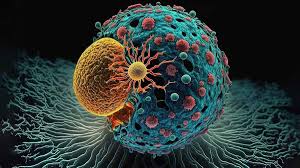WHEN A CHILD IS UNUSUALLY SHORT

STUNTED GROWTH IS A FAST-GROWING REALITY IN INDIA SAY EXPERTS AT RUBY HALL CLINIC WANOWARIE
Anika* was way shorter than girls of her school. A local doctor who examined her told her father: “Just feed her enough and she will grow.” Years passed, but no amount of food or fluids would help. Someone then suggested she do skipping every day. Another physician recommended swimming and eating well to ensure weight gain. A nutritionist said the usual diet wouldn’t work and put heron a high protein diet.
But nothing seemed to work. In a desperate attempt, the family decided to shift from a small village in Maharashtra to Pune for treatment. And it was at Ruby Hall Clinic Wanowarie that Anika was finally diagnosed with having Turner Syndrome – a chromosomal condition that affects girl children. Its most common feature is short stature.
Does your child seem much shorter – or much taller – than other kids his or her age? It could be normal. Some children may be small for their age but still be developing normally. Some children are short or tall because their parents are. But some children have growth disorders that prevent children from developing normal height, weight, sexual maturity or other features.
BUT WHAT CAUSES GROWTH PROBLEMS?
Some growth problems are genetic, while others may be caused by hormonal disorders or poor absorption of food. Causes for growth problems usually fall into the following categories:
- FAMILIAL SHORT STATURE: Familial short stature is a tendency to follow the family’s inherited short stature (shortness)
- CONSTITUTIONAL GROWTH DELAY WITH DELAYED ADOLESCENCE OR DELAYED MATURATION: A child who tends to be shorter than average and who enters puberty later than average, but is growing at a normal rate may have a growth delay
- SYSTEMIC DISEASES: Constant malnutrition, digestive tract diseases, kidney disease, heart disease, lung disease, diabetes, and severe stress can cause growth problems.
- ENDOCRINE DISEASES: Adequate production of the thyroid hormone is necessary for normal bone growth. Cushing’s syndrome, a rare condition, can be caused by a myriad of abnormalities that result in hyper secretion of corticosteroids by the adrenal gland. Growth hormone deficiency involves a problem with the pituitary gland (small gland at the base of the brain).The pituitary gland secretes several hormones, including growth hormone.
- CONGENITAL PROBLEMS: With a condition called intrauterine growth restriction (IUGR), slow growth within the uterus occurs during a pregnancy. This can be caused by many factors, including smoking during pregnancy. The baby is born smaller in weight and length than normal, although proportionate to his/her short stature.
A common chromosome abnormality that results from too few chromosomes is the following:
– Turner syndrome is a genetic disorder seen in girls that causes them to be shorter than others and fail to develop during puberty.
– There are different bone diseases that affect height and growth, many of which are genetic. The most common is achondroplasia, a type of dwarfism in which the child’s arms and legs are short in proportion to his or her body length. Further, the head is often large and the trunk is normal size.
Dr. Meghna Chawla, Consultant Paediatric Endocrinologist, Ruby Hall Clinic Wanowarie adds, “Some growth problems may be immediately diagnosed at birth, because the infant may be abnormally small for his or her age. However, many growth problems are noticed much later, when the child appears smaller than his or her classmates, or when growth appears to be insignificant over a period of a year. The primary symptom that may indicate a growth problem is when a child grows less than two inches a year after his or her third birthday.”
If your child has problems with growth, puberty, diabetes, or other disorders related to the hormones and the glands that produce them, a paediatric endocrinologist would be the right specialist to treat your child. At Ruby Hall Clinic Wanowarie’s Department of Paediatric Endocrinology, children ranging from those just born upto the age of 18 can be diagnosed, treated, and managed for endocrine disorders.
“Children are not just small adults. As growing individuals they have special needs related to growth and development. In addition, their psychological needs are different from those of adults. Hormone problems affecting growth or sexual development can have significant effects on a child’s physical and emotional well-being. At Ruby Hall Clinic Wanowarie, our paediatric endocrinologists are sensitive to these issues.” says Dr. Manisha Karmarkar, COO, Ruby Hall Clinic Wanowarie.
———————————————— Article By Ruby Hall Clinic, Wanowarie.









